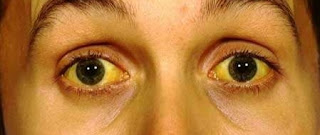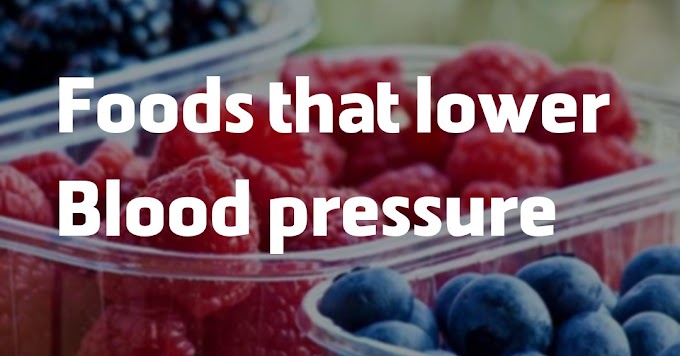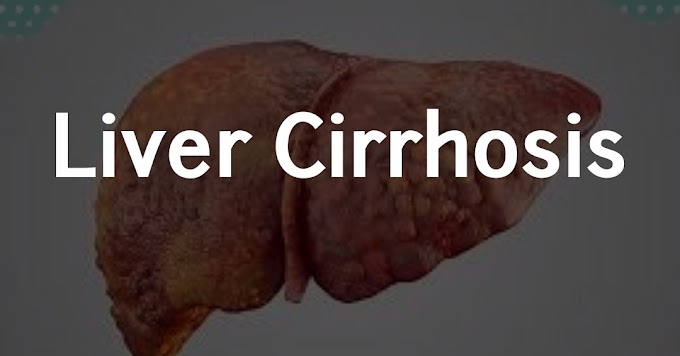What is jaundice ?
Jaundice is a symptom rather than a disease. It is basically yellowish colouration of skin and eyes. It is due to increase in the bilirubin level in the blood.Bilirubin is a orange-yellow colour pigment which is secreted from liver. This pigment formed from breakdown of haemoglobin.
Jaundice is caused by many underlying disease, this is because it is more accurate to say as a symptom rather than a disease.
Types of jaundice:
It is basically divided into 3 phases to understand it in better way . Let's understand accordingly :
1. Hemolytic (Pre-hepatic jaundice):
It occurs due to excessive breakdown of red blood cells which becomes burden to the liver to conjugate bilirubin that produced due to excessive hemolysis of RBC. This lead to the rised unconjugated(Indirect) bilirubin termed as unconjugated hyperbilirubinaemia.
Portion of the bilirubin that get conjugated by the liver get excreted out normally . Unconjugated bilirubin remains in the blood stream and causes jaundice.
Causes of hemolytic jaundice :
- Haemolytic anaemia
- Gilbert’s syndrome
- Criggler-Najjar syndrome
2. Intrahepatic or Hepatocellular jaundice:
In this type of jaundice, hepatocytes or cells of liver are damaged and stops functioning. The liver loses it's ability to conjugate bilirubin .
In this type of jaundice both conjugated(Direct) and unconjugated bilirubin get increased in the blood stream . It is also known as Biphasic jaundice.
Causes of Hepatic jaundice:
- Alcoholic liver disease
- Viral hepatitis
- Hereditary haemochromatosis
- Primary biliary cirrhosis or primary
- Sclerosing cholangitis
- Autoimmune hepatitis
- Hepatocellular carcinoma
- Iatrogenic, e.g. medication
3.Post-hepatic or Obstructive jaundice:
It's due to the obstruction in the biliary drainage system. Bilirubin get conjugated but can't transported to the intestine due blockage in the duct system.
Here conjugated (Direct) bilirubin get increased in the blood stream. It is also termed as conjugated hyperbilirubinaemia.
Causes of Obstructive or post-hepatic jaundice:
- Intra-luminal causes . eg. gallstones
- Mural causes; eg. cholangiocarcinoma, strictures, or drug-induced cholestasis
- Extra-mural causes, eg. pancreatic cancer or abdominal masses (lymphomas).
What is Bilirubinuria:
Bilirubin in urine is termed as bilirubinuria.
Observations regarding colour of the urine plays an important role in estimating the type of jaundice a person can have.
Conjugated bilirubin is water soluble so it can be excreted out through urine on other hand unconjugated bilirubin can not . This is the reason why urine colour is dark (cola) in conjugated(obstructive) or mixed ( hepatic) jaundice . But urine colour remains normal in case of unconjugated (hemolytic) jaundice.
In obstructive jaundice stool colour is pale because of decreased level of stercobilin formation in the intestine as there is reduced level of bilirubin entering the GI tract .
What are the tests for jaundice:
Proper history taking can help a lot in identifying the underlying causes for the jaundice. Then go for laboratory investigation for the confirmation.
Laboratory tests/ investigation:
Patient suspected to have jaundice should go through the following laboratory investigation:
- Liver function test(LFT)
*Bilirubin
Quantify extent of any suspected jaundice
*Albumin
Synthesising function of liver.
*AST and ALT
Markers of hepatocyte injury.
*Alkaline Phosphatase
Rises in obstruction in biliary system.
*Gamma-GT
More specific for obstruction in biliary system than ALP .
Some other procedures are also performed in some of the cases like Liver screening, amaging,Magnetic Resonance Cholangiopancreatography (MRCP) etc.
Management of jaundice:
Hyperbilirubinaemia causes itching so symptomatic treatment may be required. It may respond to simple anti-histamines.
Also know about Liver Cirrhosis








